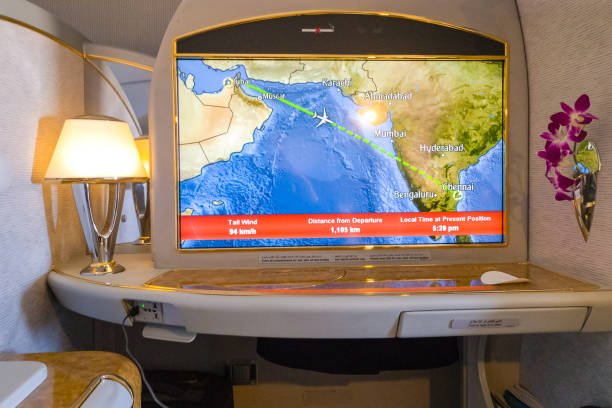UAE Closes Its Airspace: In a significant development amid rising Middle East tensions, the United Arab Emirates (UAE) has temporarily closed its airspace to all commercial and civilian flights. This move follows a series of escalating military actions, including missile strikes by Iran on U.S. Bases in Qatar and Iraq. The UAE’s decision has led to widespread flight disruptions, affecting major airlines like Emirates, Etihad, and Flydubai, and prompting global aviation reroutes. As regional stability hangs in the balance, authorities and travelers alike are on high alert.

UAE Closes Its Airspace — What’s Behind It?
Why it happened (June 23, 2025):
The UAE is reportedly shutting its airspace amid escalating regional military tensions, particularly following missile strikes by Iran targeting U.S. bases in Qatar and Iraq. Flight-tracking data (Flightradar24) and air traffic control communications confirmed the closure. This reflects heightened security precautions in the Gulf after several regional states like Qatar, Bahrain, and Kuwait enacted similar restrictions.
✈️ Impact on Flights & Airlines:
-
UAE airlines (Emirates, Etihad, Flydubai, Air Arabia) have extended flight suspensions, rerouting or canceling flights across the Middle East and Eastern Europe.
-
Flights into Dubai International (DXB) and Abu Dhabi are affected—several carriers have paused services for security reasons.
-
Global aviation disruption: Carriers worldwide are avoiding Gulf airspace; routes are detouring via the Caspian Sea or over Egypt and Saudi Arabia, increasing travel times, fuel costs, and operational strain.
🏛️ UAE’s Emergency Measures:
-
UAE airports have activated emergency response protocols, deploying extra personnel to assist stranded travelers and keep operations running during this period.
-
Travelers are being encouraged to check with airlines for schedule changes and to prepare for potential delays or rerouting.
🔄 Current Travel Advice:
-
Safety first: Though no incidents have occurred within the UAE itself, civil aviation authorities are keeping the airspace closed pending reduced regional threats.
-
For passengers: Check official airline notices and airport alerts before traveling. Expect flight reroutes, longer travel times, and possible service changes.
-
Keep agency informed: Visa holders and those on visitor/stay visas in the UAE should plan renewals proactively—travel disruptions may hinder timely departures.
🌍 Wider Context: Regional Escalation:
This closure comes shortly after:
-
U.S. and Israeli strikes hit Iranian nuclear sites (June 22, 2025).
-
Iran retaliated with missile attacks on U.S. bases in Qatar and Iraq.
-
A domino effect of airspace closures across the Gulf—Qatar, Kuwait, Bahrain, Jordan—leading airlines to preemptively ground or reroute flights.
🌐 What to Expect Next:
-
Airspace closures will likely remain until the region stabilizes, possibly for days or more.
-
Gulf carriers are monitoring the situation closely. Emirates, for instance, suspended flights to Iran and Iraq through at least June 30.
-
Global carriers continue to avoid Gulf routes, with broader implications for long-haul network planning and passenger itineraries.

📌 Key Takeaways:
| Insight | Details |
|---|---|
| What happened? | UAE, along with several Gulf states, closed airspace today (June 23) due to rising regional military threats. |
| Why now? | A direct link to Iran’s missile strikes on U.S. bases in the region following U.S.–Israel military actions against Iran. |
| Who’s affected? | UAE’s national airlines + global carriers—passengers face cancellations, reroutes, delays. |
| Local response | Airports have deployed emergency teams; visa/hotel/travel plans may be disrupted. |
| Advice | Stay tuned via airline/airport updates, plan renewal of visas early, and monitor geopolitical developments. |
The closure of the UAE’s airspace highlights the growing volatility in the Middle East and its direct impact on global aviation and travel. As regional powers engage in military posturing and retaliation, countries like the UAE are prioritizing civilian safety through precautionary measures. While the full reopening of air routes depends on how the geopolitical situation unfolds, airlines and passengers must remain adaptable. This incident serves as a stark reminder of how swiftly regional conflicts can disrupt international connectivity and affect lives far beyond the borders of those directly involved.
ऐसे और भी एक्सप्लेनर लेखों के लिए हमारे साथ जुड़े रहें! Khabari bandhu पर पढ़ें देश-दुनिया की ताज़ा ख़बरें — बिज़नेस, एजुकेशन, मनोरंजन, धर्म, क्रिकेट, राशिफल और भी बहुत कुछ।


2 thoughts on “UAE Closes Its Airspace Amid Iran-U.S. Tensions, Major Flight Disruptions Reported”